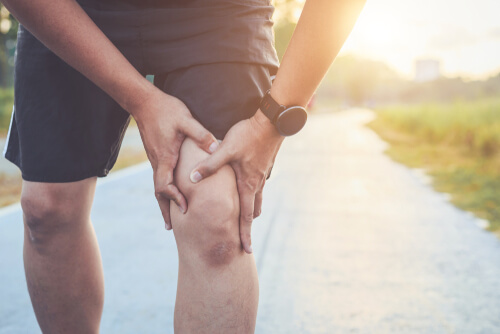Cracking knee
A cracking knee means that your knee creaks or makes a different sound when making certain movements. It usually occurs when you bend your knees or put force on your bent knee. This is also known as crepitus. Are you curious to know more, such as how to treat this? Then feel free to read on. We are happy to explain.
Causes of a cracking knee
A cracking knee is common. Usually, your knee makes a snapping or crunching sound around the kneecap. Below and above the kneecap are layers of cartilage. These allow you to move smoothly. As you strain the knee, these layers become less even. As a result, these layers can cause more friction when you strain the knees. This causes a snapping or cracking sound. Furthermore, a cracking knee can also be another symptom of knee osteoarthritis or patellofemoral pain syndrome.

Are cracking knees harmful?
All joints in the body creak or crack from time to time. This is perfectly normal. If the knee also hurts or feels stiff, however, it is important to raise the alarm. In this case, a physiotherapist or GP can investigate further.
What can you do about a cracking knee?
When you bend your knees, the force of your body weight can cause the knee joint to make a cracking sound. This is usually harmless. There are several things you can do to prevent a cracking knee:
- Maintain a healthy weight
- Wear supportive shoes
- Strengthen the muscles around the knee joint
- Stretch regularly
- Wear a knee brace
Ultimately, it is important to reduce pressure on the knee joint. Being overweight puts extra pressure on the knees, which can lead to cracking. In addition, supportive shoes provide good cushioning for the arch of the foot, reducing the pressure on the knees. Furthermore, strong muscles help stabilise the knee joint and remove some of the pressure on the knee.








